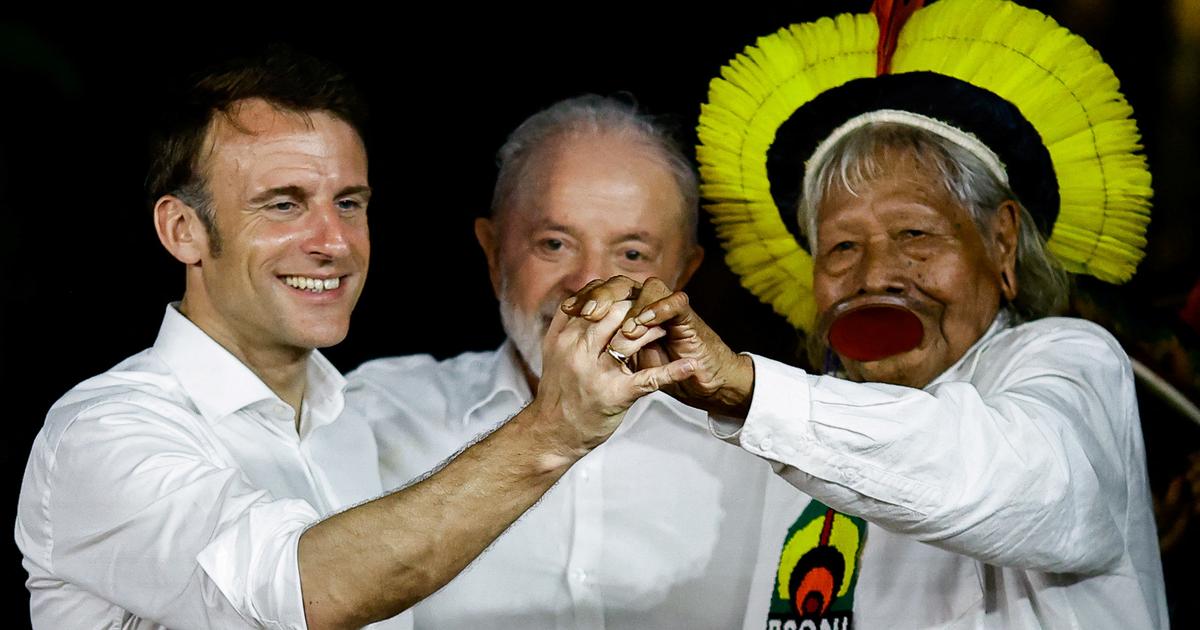The electoral campaign began this Tuesday in Brazil with an unpublished image that is a good summary of how the elections are presented: a hand in hand between two veterans, the first worker president and the first of the extreme right.
Although both have been in politics for decades, Luiz Inácio Lula da Silva, 76, and Jair Bolsonaro, 67, had never met in person.
This afternoon both have participated in a ceremony in Brasilia, at a safe distance, with the members of the third protagonist of this election, the Superior Electoral Court (TSE), the referee who will have the last word if the most pessimistic forecasts are fulfilled and Bolsonaro question the result.
Lula's lead over Bolsonaro, which is shrinking, is 18 points.
45 days left for the first round.
The image of Lula with Bolsonaro has made photographers suffer.
The second has been in the rostrum of authorities, the second, opposite, along with former presidents oreos.
On October 2, the Brazilian electorate will also vote to renew the entire Chamber of Deputies, a third of the Senate, the 26 governors and all the state legislative chambers.
The latest Datafolha poll, the most prestigious among the avalanche of polls, gave Lula 47% in the first round at the end of July compared to 29% for Bolsonaro.
The leftist triumphs among the poor and the youth;
the extreme right, between men and evangelicals.
It is not yet confirmed that the favorites will have a new face-to-face in an electoral debate.
This Tuesday, in Brasilia, posters of the two favorite candidates for the presidential elections of October 2 of this year. UESLEI MARCELINO (REUTERS)
Each of the favorites wanted to print their stamp on this first day of the campaign.
Lula's first act was at the gates of the Volkswagen factory in São Bernardo do Campo, south of São Paulo, a nod to the workers' struggles that catapulted him into politics four decades ago.
Instead, Bolsonaro has preferred to look back four years.
And he has traveled to Juiz da Fora, the city of Minas Gerais where in the 2018 campaign he was stabbed by a madman.
There the president has recovered the messianic tone that gave him victory then: "Brazil was on the verge of collapse, with ethical, moral and economic problems, and was marching in great strides towards socialism," Bolsonaro proclaimed in a speech he has given surrounded by evangelical pastors after a biker march.
Next to her, her wife, Michelle, who appeals to the most ultraconservative vote and strives to soften the image of her husband among women, one of the groups where she arouses the most rejection.
Lula has appealed, for his part, to the legacy of his two terms as head of the federal government (2002-2010).
The leftist has urged his followers to mobilize in the two areas where this battle is being waged: "Let's occupy the streets and the networks," he told them before appealing to hope: "We are an idea, and no one can imprison an idea.
They have killed many flowers, but they will not stop spring.
We are alive and strong.
With love we will conquer hate”, he said, boarding a bus in front of one of the factories where he became a union leader before founding the Workers' Party.
Lula's campaign is one of nostalgia, of remembering the golden years in which millions of Brazilians who lived in misery prospered until they left poverty behind.
Bolsonaro also appeals to the achievements of his governments in addition to appealing to fear.
He frames this high voltage duel as a battle between good and evil.
If none of the candidates achieves an absolute majority of the valid votes, there would be a second round on October 30.
Lula is making every effort to win in the first round, something that none of his predecessors has achieved in the 21st century.
For that, he has chosen Gerando Alckmin as number two, a former governor of São Paulo whom he defeated in the 2006 presidential election and who in 2018 embodied the resounding defeat of the center right before the swerve to the radical right that led to Bolsonaro's victory.
None of the remaining candidates exceeds 8% support.
Members of the Minas Gerais Military Police walk in front of a Brazilian flag with the face of Bolsonaro on August 16, the day the presidential campaigns are inaugurated. MAURO PIMENTEL (AFP)
The prominence of Facebook, Telegram, YouTube, WhatsApp and the rest of the social networks in this campaign is enormous because they are the main channel through which millions of Brazilians get information.
In view of the influence attributed to
fake news
in 2018, the fight against misinformation has intensified by the electoral authorities.
But the amount of dubious or outright false information is enormous and spread at lightning speed.
One of the falsehoods, agitated by a Bolsonarista deputy, that is penetrating the most in recent weeks is that Lula will close churches if he wins the elections.
At Tuesday's rally, Lula accused Bolsonaro of "being a Pharisee who wants to manipulate the good faith of evangelical men and women who go to church."
The systematic campaign of the current president to sow doubts about the voting system has catapulted the Superior Electoral Court, made up of Supreme Court judges, into the center of the political debate.
And it has turned on the alerts in such a way that a manifesto in defense of democracy has managed to unite bankers, businessmen, representatives of civil society and activists.
The scrutiny to which the electronic ballot boxes are subjected this time is maximum and Bolsonaro wants the Armed Forces to be involved in the supervision and even the count.
The inauguration of the new president of the TSE has led to that hitherto unpublished photo of Lula and Bolsonaro together and a reunion that is also very morbid, that of former president Dilma Rousseff, of the PT, and her successor, Michel Temer, of the center right , which the left blames for having propitiated the traumatic expulsion of the PT from power in 2016. If the trend in the polls continues and the electorate confirms it in October, the PT will return to power in the first power in Latin America.
Subscribe here to the EL PAÍS América
newsletter
and receive all the key information on current affairs in the region.

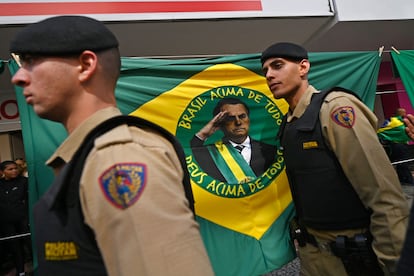
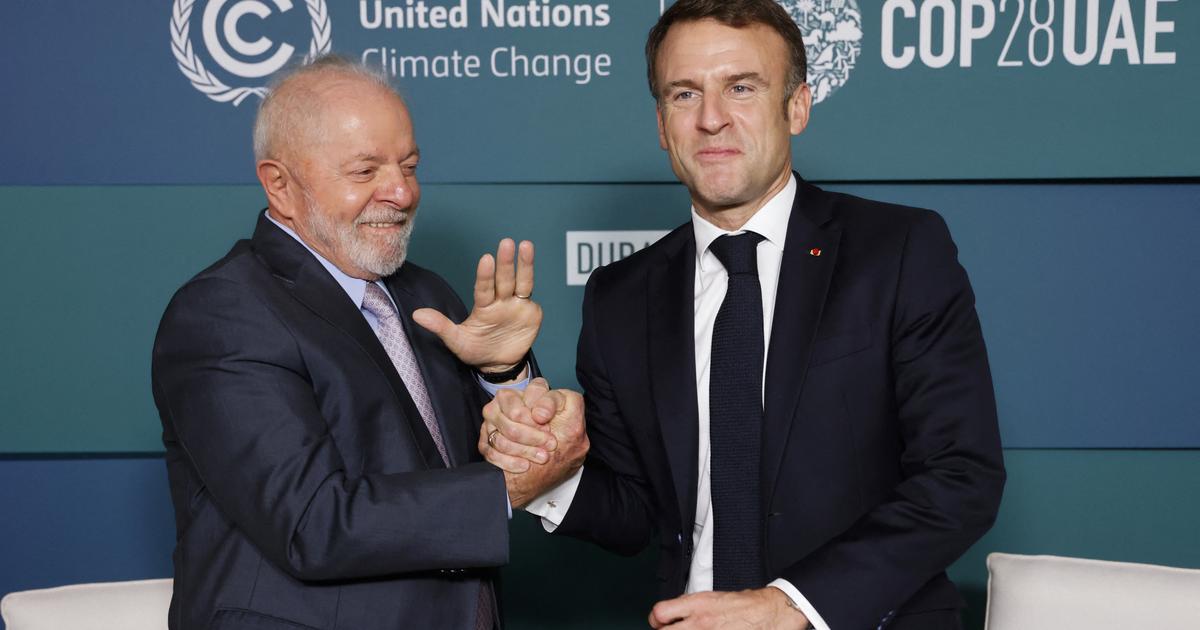
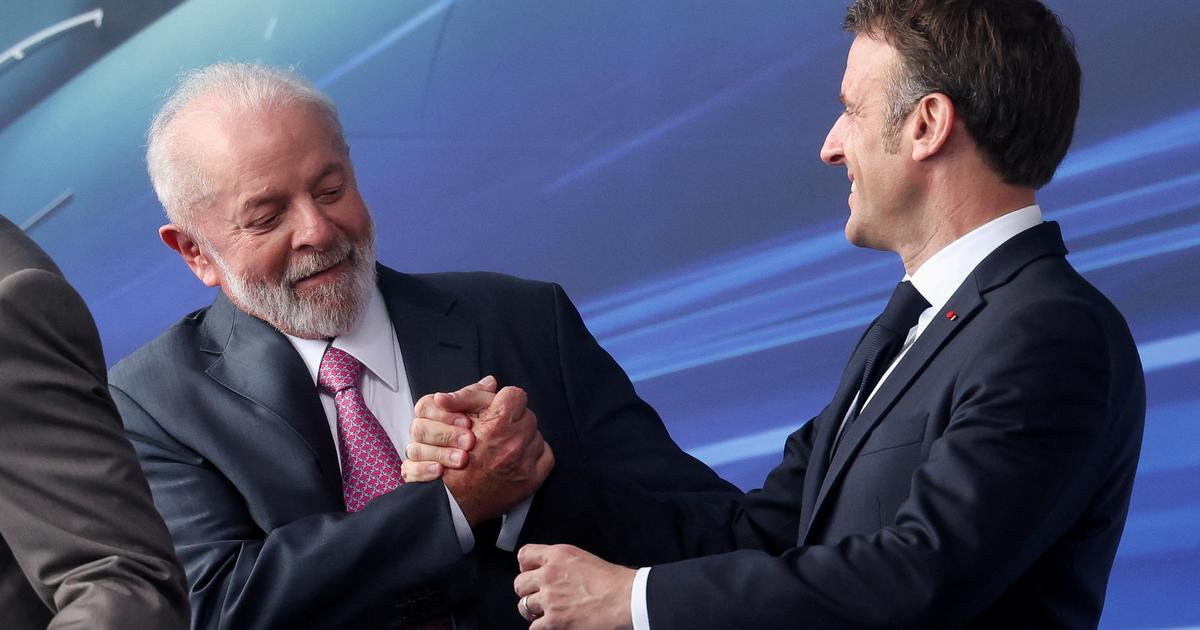
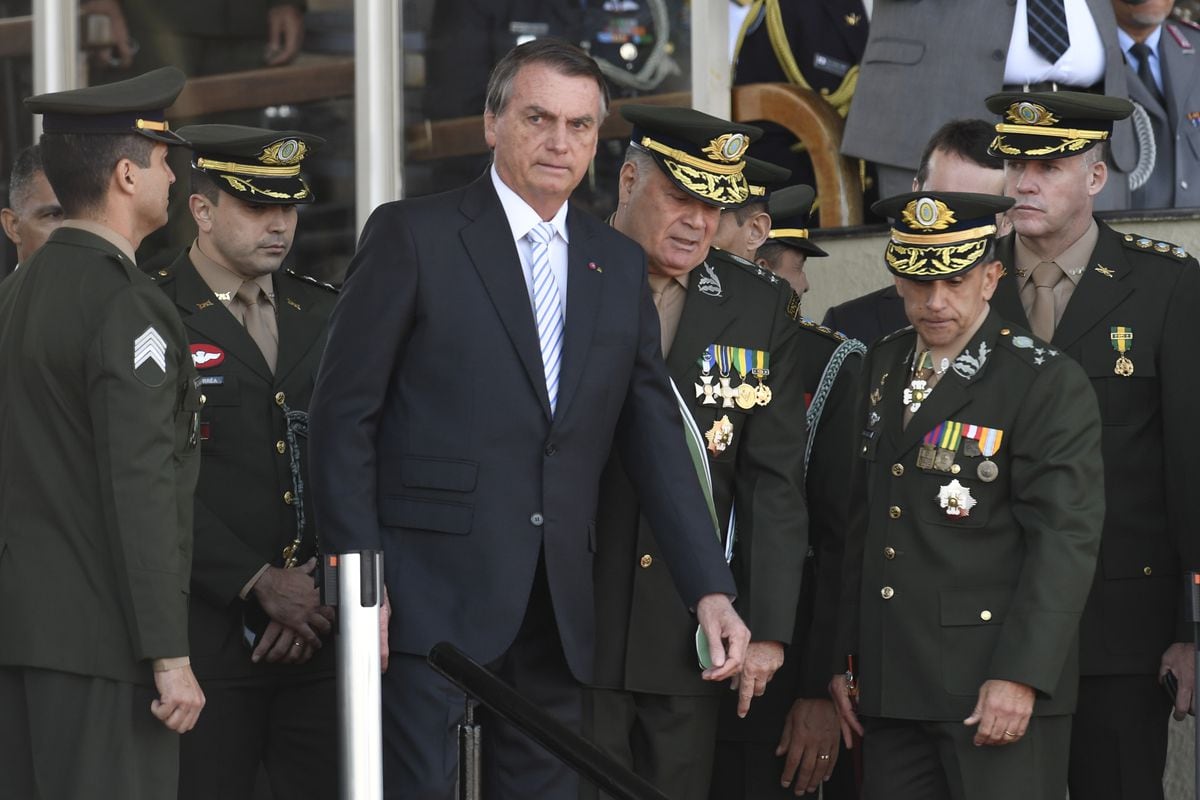
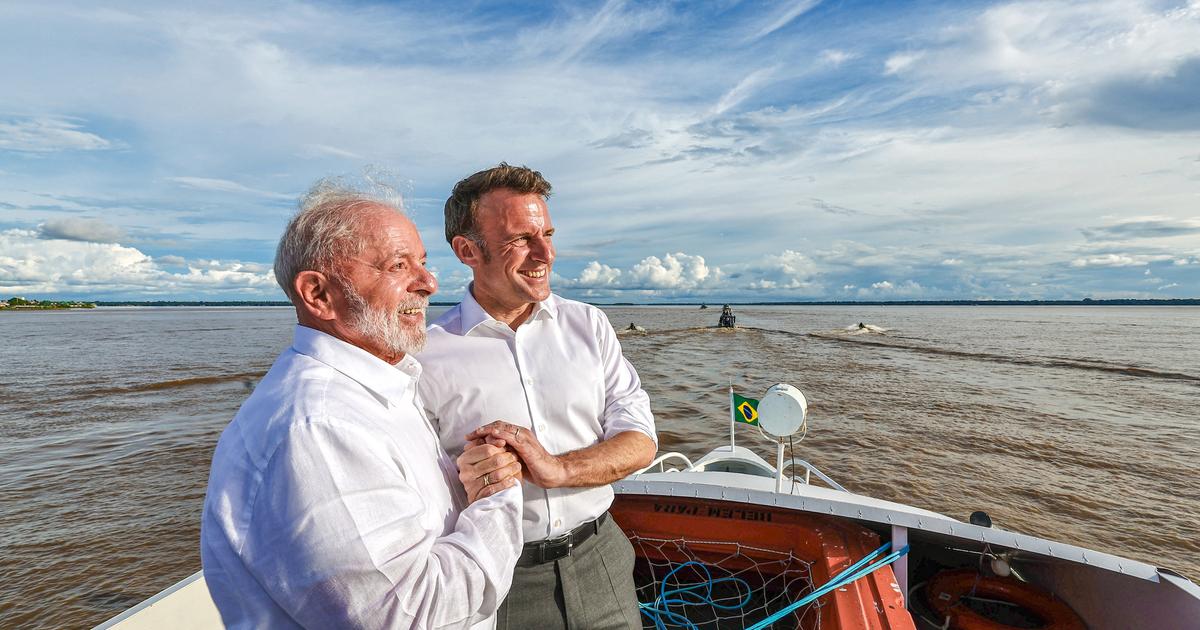

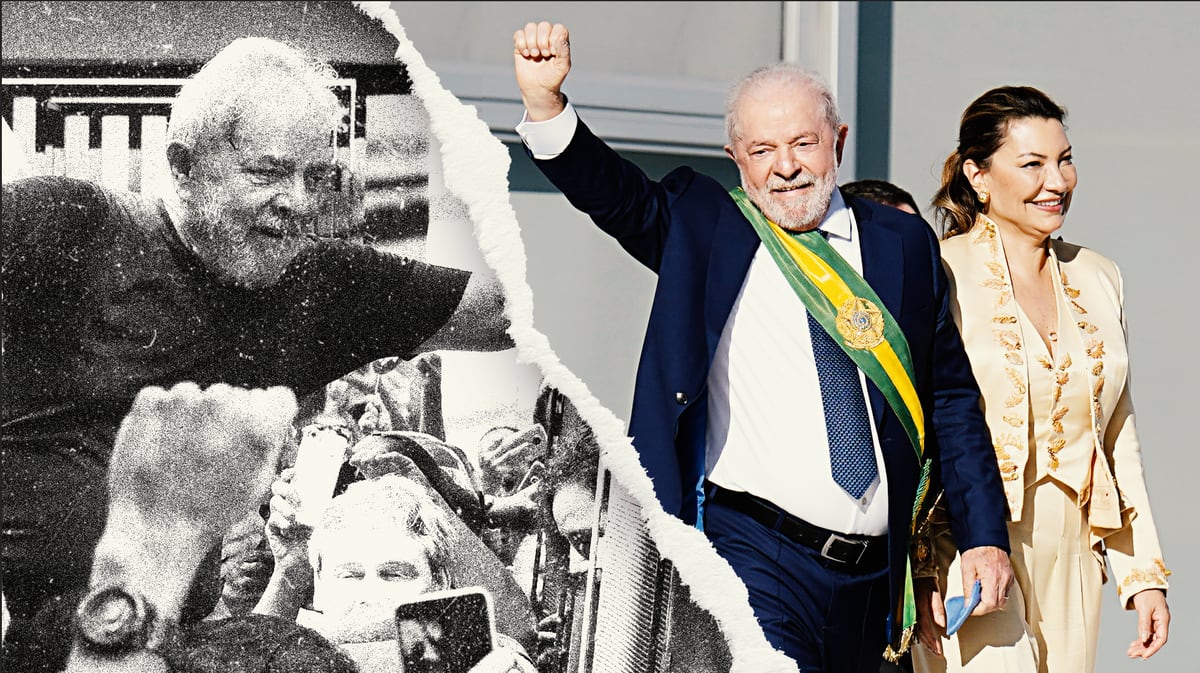
/cloudfront-eu-central-1.images.arcpublishing.com/prisa/UYB5LX3DDBAQTJNDI5EKYZLHEM.jpg)
